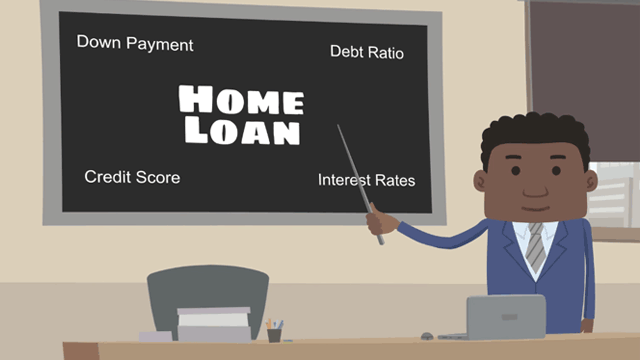FHA Home Loan Interest Rate Factors
March 24, 2025
Who determines the interest rates for FHA loans?
The Federal Housing Administration (FHA) insures FHA loans, but does not set or regulate FHA loan interest rates.
Instead, banks, credit unions, and mortgage companies determine the interest rates offered to borrowers. FHA loan guidelines and lender standards both play a role in loan approval.
What influences FHA loan interest rates?
FICO scores can influence the mortgage rate the lender offers. Higher scores typically result in lower rates, but other factors must also be considered.
A higher loan-to-value ratio can lead to higher rates. You can adjust that value with a higher downpayment. Your debt-to-income (DTI) ratio also matters. A lower DTI ratio generally helps the lender offer you a lower rate.
Shorter FHA loan terms often have lower interest rates. You could save more on a 15-year mortgage than on a 30-year note.
What non-financial factors can influence FHA loan interest rates?
Beyond financial considerations, non-financial factors also contribute to interest rate determination. Inflation and Federal Reserve policies impact rates, and each lender's internal policies and risk tolerance influence rates, too.
Property location, including local market conditions and property values, can affect rates. Whether it’s a purchase or refinance, the rate offered can also influence it. Even within the FHA program, certain loan types can influence rates.
How do fixed-rate and adjustable-rate mortgages differ?
Fixed-rate mortgages keep the same interest rate throughout the loan's term, allowing for stable monthly payments.FHA adjustable-rate mortgages (ARMs) have interest that fluctuates based on a predetermined index.
How can I get the best possible FHA loan rate?
Improve your credit score. Take steps to your DTI ratio, this is also very important. A larger down payment can help. Shop around. Compare loan rates from multiple lenders. Understand the implications of points and fees.
What are Mortgage Insurance Premiums?
Mortgage Insurance Premiums protect the lender against default. This includes a one-time fee paid at closing and the annual FHA Mortgage Insurance Premium, which is added to your mortgage payments for the year, split over 12 installments.
Can I refinance my FHA loan, and what are the options?
Options include the FHA streamline refinance, a rate and term refinance to change interest rates and loan terms, and FHA cash-out refinances to access home equity.
How does my credit score specifically influence the interest rate I'm offered?
Higher scores indicate lower risk, leading to better rates. Even with lenient FHA standards, a higher score can improve your offered rate.
Besides interest rate, what other costs should I consider when evaluating an FHA loan?
Beyond the interest rate, you should consider mortgage insurance premiums (MIP), closing costs, including origination fees and appraisal fees, property taxes and homeowners insurance, and any potential HOA fees.

FHA Loan Articles
August 23, 2023Mortgage APR (Annual Percentage Rate) and a loan's interest rate are two different things, although they are closely related. Understanding the difference is an important part of a borrower's analysis of the true cost of their mortgage.
August 19, 2023FHA refinance loans allow homeowners with existing FHA loans to refinance their mortgages. These loans are designed to help borrowers take advantage of lower interest rates, reduce their monthly mortgage payments, or access equity in their homes for various purposes.
August 14, 2023FHA loans typically require a minimum down payment of 3.5% of the purchase price of the home with the right credit score. This means that if you're buying a house for $240,000, you would need to make a down payment of at least $8,400.
August 10, 2023FHA loans have specific rules and requirements for borrowers who have filed for bankruptcy. The guidelines can change over time, so it's essential to consult with a qualified lender or FHA-approved counselor for the most up-to-date information.
August 3, 2023FHA loans are primarily designed to help individuals and families purchase homes for use as their primary residences. Rules for these loans generally discourage their use for investment properties or rentals. However, there are exceptions that come with strict rules.







